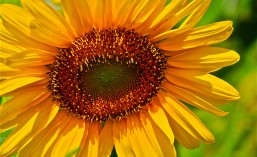The rain is alive with songs
it has penned
for thousands years,
and my heart is blessed
by the sound of its music.
~Idea for above by Natalie Scarberry inspired
by a song in the SOUND OF MUSIC
The Voice of the Rain
And who art thou? said I to the soft-falling shower,
Which, strange to tell, gave me an answer, as here translated:
I am the Poem of Earth, said the voice of the rain,
Eternal I rise impalpable out of the land and the bottomless sea,
Upward to heaven, whence, vaguely form’d,
altogether changed, and yet the same,
I descend to lave the drouths, atomies, dust-layers of the globe,
And all that in them without me were seeds only, latent, unborn;
And forever, by day and night, I give back life to my own origin,
and make pure and beautify it;
(For song, issuing from its birth-place, after fulfilment, wandering,
Reck’d or unreck’d, duly with love returns.)
~Walt Whitman
“He draws up the drops of water, which distill as rain to the streams…” ~Job 36:27 ✝
**The poet Walt Whitman writes of a conversation he once had with the rain as it dropped gently from the heavens. “Who are you?” the poet asked. Strangely, the raindrops replied and the poet translates its answer for the readers. “I am the poem of the earth,” said the rain. The rain adds that it is born in the form of invisible and intangible vapors that rise eternally from the earth’s land and deep water bodies. It then reaches heaven (the sky) and changes its appearance complete to form clouds of abstract, changeable shapes. Yet, at its core, it remains the same as it was at birth. It then returns to earth as little droplets which wash away the dust and rejuvenate the drought-ridden, dry land. New plants find life which would have otherwise remained hidden and unborn inside the land as mere seeds. Thus, this perpetual cyclic lifestyle ensures that the rain retunes to its origin, the earth, giving it life, and making it pure and beautiful. The poet realizes that the rain’s life is similar to that of any song. A song’s birth place is the poet’s heart. Once complete, it is passed on (wanders) from one person to another. It may change (reck’d) or remain the same (unreck’d) as it travels, but one day, it returns to the poet with all due love of the listeners. The poem is written from the point of view of someone who asked the rain who it was and was answered, it saying “I am the poem of the Earth”, then proceeding to tell how it comes from the earth, only to return once again to wash it and nourish it…that if it were not for the rain, seeds would remain seeds and not flower into their full potential…giving back life to its origin. Then the poem’s “turn” uses this story as a segway to show how “song, issuing from its birth-place, after fulfillment, wandering, Reck’d or unreck’d, duly with love returns.” Meaning that songs come from the soul and after they’ve been heard, and thought good or bad, return with love. Just as rain rises and falls back again, so do poems, songs and other forms of beauty from the soul. (In the photo on the left side of the collage, the artist penned the words to Whitman’s song as the drops of rain.)



